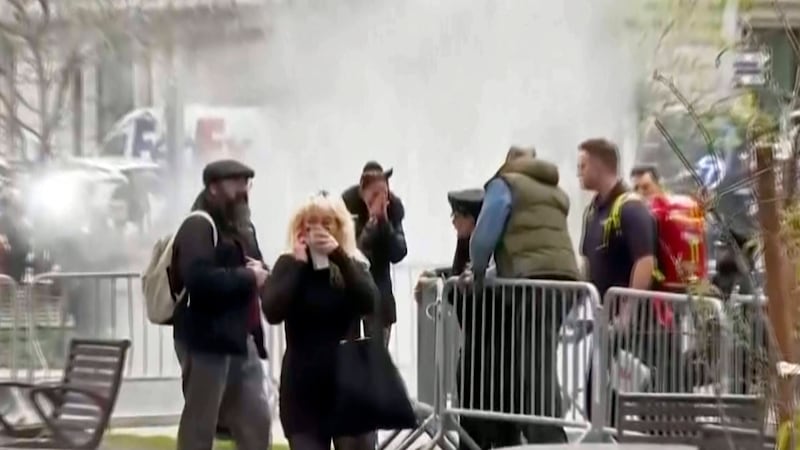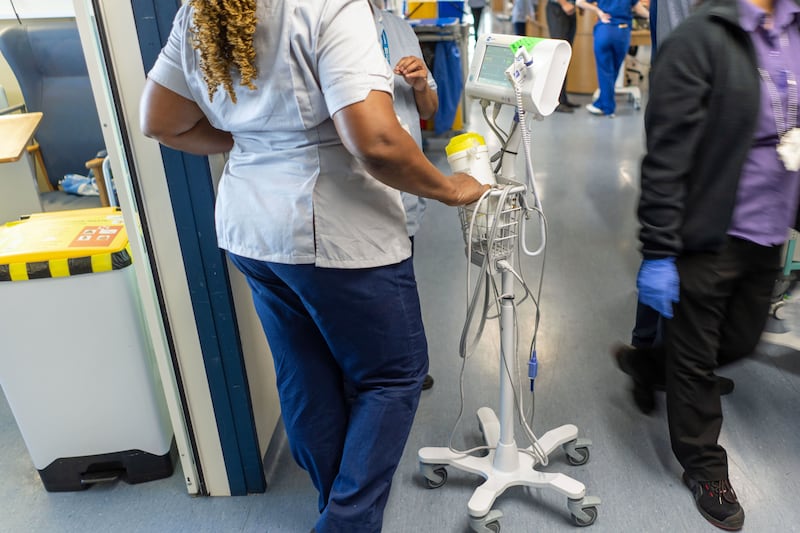A CAMPAIGN which has cost more than £500,000 to recruit overseas nurses to help plug 1,500 vacancies in the health service has resulted in only 12 jobs being filled.
Italy, Greece, Romania, India and the Philippines were visited by 37 health trust staff between last May and June this year in a drive to tackle spiralling nursing shortages and rocketing bills on agency staff.
Funded by the Department of Health, this was the first campaign of its kind in more than a decade and was also attended by four employees from private recruitment firms.
Details obtained through a Freedom of Information (Fo)) request reveal that, while a total of 66 EU and non-EU recruits have 'arrived' in Northern Ireland, the vast majority cannot legally work as nurses as they must complete exams and "satisfy requirements" set by the regulator, the Nursing and Midwifery Council (NMC).
A Department FoI officer said the workers are employed in healthcare assistant jobs - which are significantly lower paid posts - until they complete full registration, a process which can be 'lengthy'.
"Differing requirements for EU and non EU nurses and can take several months," she said.
"Of the 66 nurses who have arrived in NI, 12 of these have obtained full registration with NMC and are in nursing roles."
The officer also confirmed that £489,982 was spent between April 2016 and March this year on the campaign, with a further £76,156 bill for the first quarter of the 2017/18 financial year.
Four-star hotels including the Novotel in Athens, the Starhotel Excelsior in Bologna and the Diamond hotel in Manila were among those used by the 41 recruitment staff, with the final £566,138 bill including flights, accommodation, subsistence and hiring of interview rooms.
The spend comes at at time when health trusts are being ordered by the Department of Health to make £70 million in cuts to frontline services - including bed closures and care home places - to break even on their budgets.
The Irish News understands that serious concerns have been raised privately about the bill and its poor outcome in the dire financial climate.
However, it has emerged that despite its failure, overseas recruitment will continue to receive funding for the next six months.
A department spokeswoman confirmed last night: "International recruitment will continue in 2017/18. The position for 2018/19 will be reassessed later this year."
One of the main stumbling blocks in hiring European and overseas nurses is a controversial new £150 English language exam that has been slated over its high failure rate across the entire NHS.
It emerged some highly-skilled Australian nurses with English as their first language were repeatedly failing the written part of the exam - with bizarre essay questions on topics including 'jam making' and road tolls.
The department revealed that of the 66 recruits selected, only 23 passed the exam known as the English Language Testing System (IELTS).
In July, the Irish News reported on a Greek nurse who £1,000 in a year by retaking the test five times and getting tutoring. While she scored highly in the speaking, reading and listening elements, she narrowly kept failing the written element.
Foteini Kourakou (27), who previously worked in an intensive care unit in Greece, has been working as a care assistant in a nursing home in Co Antrim for the past year.
Speaking last night, Ms Kourakou said she failed the test for a sixth time in July and felt 'totally demoralised' by the experience. This time the essay question on whether 'customs and traditions' should continue.
The Athens woman, who speaks perfect English, is now spending additional money getting intensive online tutoring and is preparing to take the test for a seventh time.
"I understand we must be competent in English but I think the essay questions are very strange. I have no choice but to keep going as I really want to work as a nurse in a hospital in Northern Ireland."
**********************
THE head of the biggest nursing trade union in Northern Ireland has slated a costly international recruitment scheme by the Department of Health as an "absolute failure".
Janice Smyth, director of the Royal College of Nursing (RCN), last night castigated heath chiefs over cost-cutting plans and said the north has become the least attractive place to work in the NHS and on the island of Ireland for overseas staff.
Ms Smyth, who worked in the Department of Health during its last major recruitment drive more than 12 years ago and was responsible for writing guidance for international recruitment in 2004, said her members were now the worst paid in the UK with the poorest terms and conditions.
The union chief said she had been aware of 'concerns' around the latest campaign.
"It has been recognised that this recruitment exercise is not going to provide a solution to our severe nursing shortages which have resulted from cost-saving measures. These measures, such as a reliance on agency nurses, have not saved us money but cost us money," she said.
"We did the last big campaign in the early 2000s and it was seen as a short-term measure as we were increasing training places in universities. It was very successful with lots of nurses from the Philippines and India staying here and playing a key role in our profession.
"This new international recruitment exercise has been an absolute failure...it seems a considerable resource to invest for a very low return. Nurses in Northern Ireland are now the lowest paid in the UK and are paid considerably less than their colleagues in the Republic. Northern Ireland will absolutely struggle to attract nurses.
"When you divide the £566,000 spent by 12 - and that doesn't include the health trust employees' salaries - that is as expensive as it is to train a nurse in Northern Ireland."
A series of stringent cuts to nursing places and failure to replace vacant posts over the past five years has led to health trusts relying on costly agency staff to prop up the service.
Latest figures show that almost £28 million has been spent on private agency nurses across the north's five health trusts between 2014 and 2016.
The RCN estimated there are currently more than 1,500 vacant nursing places in the north.
During Ms Smyth's time as a nursing officer at the Department of Health the level of vacancies were measured as part of workforce planning.
However, the Department told the Irish News in July that it was no longer "routinely collating" the number of nursing job shortages - sparking concerns about how they manage risk.
Ms Smyth said that based on anecdotal evidence the 1,500 figure was now "much higher".








